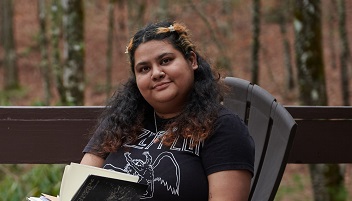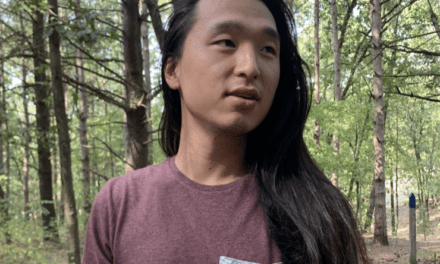Associate Editor Lisa Low: Sebastián H. Páramo’s “The Great Bear” opens with today’s changing, deconstructing landscape—the result of climate change. Moving back and forth in time and shifting in view, the poem’s ecopoetic lens bumps up against our country’s legacy of colonization. Stars and frontiers take on different meanings, and storytelling becomes a complicated medium throughout.
To hear Sebastián read his poem, click below:
The Great Bear
Now the forests are always aflame,
even the rains do nothing & we can’t leave
this planet for Mars because
space is too strange a frontier. Only the rich—
Long ago, people foraged for stories in the sky.
The moon danced with us. The children chased the moon
or they chased a horned bear in the woods. The bear disappeared
in the sky & had a daughter. Named her Ursa Minor.
Back then, we could name the stories.
We could see the stars telling us, Caution.
We could carry great pots & bundles of wood
to taste the hunt of night. That frontier is gone.
I’m sure, by now, you’ve seen people abandon their burning homes.
They run away barefoot on the highway.
Years ago, across Texas, settlers burned entire towns & said,
This land is ours.
& what am I doing here. It’s not my fault.
I’m thirsty & my Father doesn’t know what the Air does.
What my Mother doesn’t know about Sky—I don’t know either.
Before the sequins of stars became pale dots in the orange air—
I desired nothing more than to see them burning again.
But the cedars are sobbing. The wind is screaming
& no one has a name for this feeling.
Sebastián H. Páramo is a CantoMundo Fellow and a former Dobie Paisano Fellow. His work has appeared in Waxwing, Blackbird, Southeast Review, and elsewhere. He is the founding editor of The Boiler and poetry editor for Deep Vellum. He is a visiting assistant professor of English at Austin College.
For more miCRo pieces, CLICK HERE












